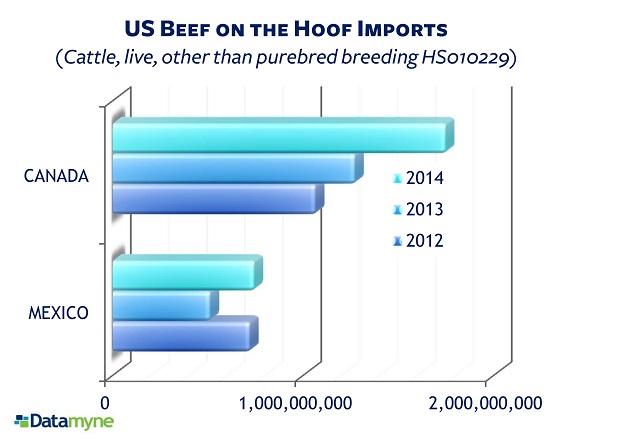Faced with the threat of retaliatory tariffs from Canada and Mexico, Congress tucked a repeal of the mandatory country-of-origin labeling – or COOL – rules for meat that offended the NAFTA trade partners into the omnibus spending bill passed in the closing days of 2015.
Canada and Mexico had appealed to the World Trade Organization soon after the current US requirements that meat product labeling disclose where the animals were born, raised and slaughtered took effect in 2013. The Canadian and Mexican governments argued the law led to reduced exports of livestock to US cattle feedlots and slaughterhouses. Here’s the trade data on livestock exports before-and-after COOL:

The WTO decided in Canada’s and Mexico’s favor, agreeing the COOL gave an unfair advantage to US beef and pork in the US market. That was in October 2014. On December 7 of 2015, the WTO followed up with a go-ahead to Canada and Mexico to slap $1.01 billion in retaliatory tariffs across a range of US products.
Canada’s agriculture minister assured US officials last summer his government was serious about retaliation, telling them that Canada “will not blink.” So Congress did.
Related:



